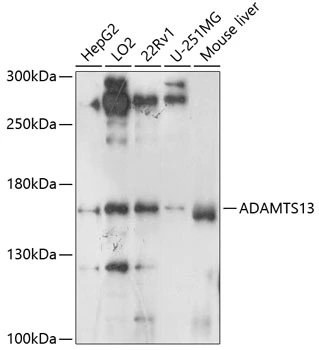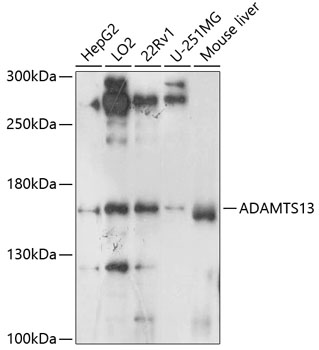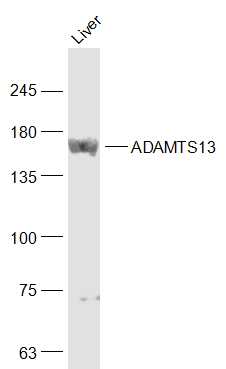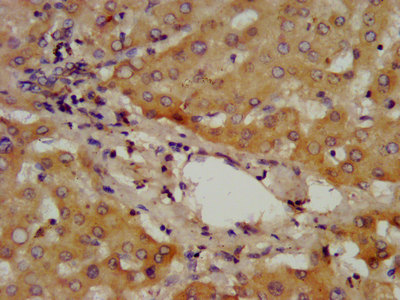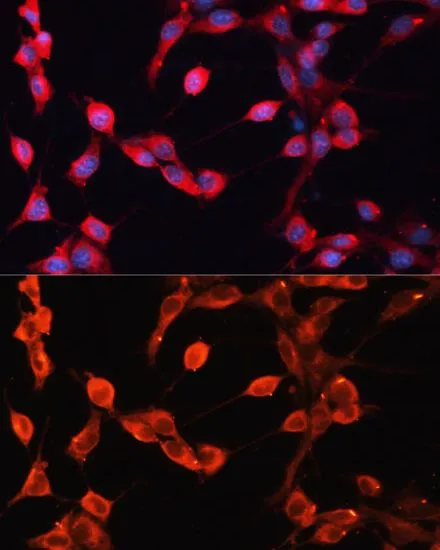
ICC/IF analysis of NIH/3T3 cells using GTX00642 ADAMTS13 antibody. Blue : DAPI Dilution : 1:100
ADAMTS13 antibody
GTX00642
ApplicationsImmunoFluorescence, Western Blot, ImmunoCytoChemistry
Product group Antibodies
ReactivityHuman, Mouse
TargetADAMTS13
Overview
- SupplierGeneTex
- Product NameADAMTS13 antibody
- Delivery Days Customer9
- Application Supplier NoteWB: 1:500 - 1:2000. ICC/IF: 1:50 - 1:200. *Optimal dilutions/concentrations should be determined by the researcher.Not tested in other applications.
- ApplicationsImmunoFluorescence, Western Blot, ImmunoCytoChemistry
- CertificationResearch Use Only
- ClonalityPolyclonal
- ConjugateUnconjugated
- Gene ID11093
- Target nameADAMTS13
- Target descriptionADAM metallopeptidase with thrombospondin type 1 motif 13
- Target synonymsADAM-TS13, ADAMTS-13, C9orf8, VWFCP, vWF-CP, A disintegrin and metalloproteinase with thrombospondin motifs 13, a disintegrin-like and metalloprotease (reprolysin type) with thrombospondin type 1 motif, 13, vWF-cleaving protease, von Willebrand factor-cleaving protease
- HostRabbit
- IsotypeIgG
- Protein IDQ76LX8
- Protein NameA disintegrin and metalloproteinase with thrombospondin motifs 13
- Scientific DescriptionThis gene encodes a member of a family of proteins containing several distinct regions, including a metalloproteinase domain, a disintegrin-like domain, and a thrombospondin type 1 (TS) motif. The enzyme encoded by this gene specifically cleaves von Willebrand Factor (vWF). Defects in this gene are associated with thrombotic thrombocytopenic purpura. Alternative splicing results in multiple transcript variants. [provided by RefSeq, Jul 2013]
- ReactivityHuman, Mouse
- Storage Instruction-20°C or -80°C,2°C to 8°C
- UNSPSC41116161

